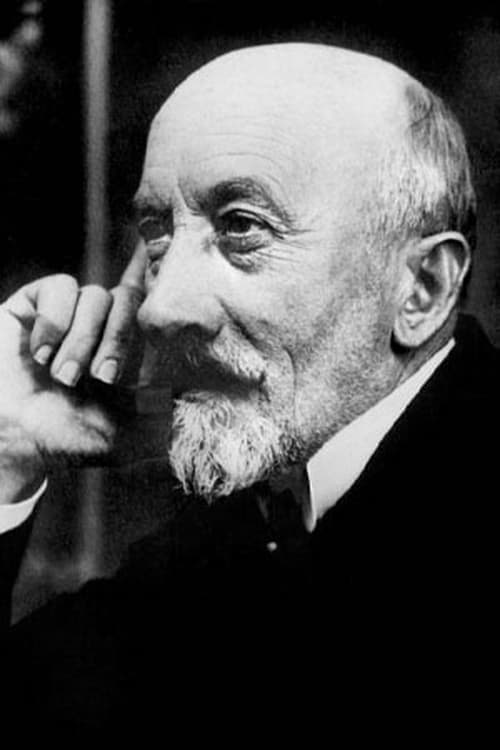The Fight of Reporters (1899)
Genre :
Runtime : 1M
Director : Georges Méliès
Synopsis
During an interval in the proceedings of the court martial, the journalists enter into an animated discussion, resulting in a dispute between Arthur Meyer of the 'Gaulois', and Mme. Severine of the 'Fronde', resulting in a fight between Dreyfusards and Anti-Dreyfusards, in which canes and chairs are brought down upon the heads of many. The room is finally cleared by the gendarmes.

Showing room at the military prison at Rennes in which Dreyfus the accused is confined. He is visited by his counsel, Maître Labori and Demange, with whom he is seen in animated conversation. A visit from his wife is announced, who enters. The meeting of the husband and wife is most pathetic and emotional.

Shows the interior of the cell of the Prison Militaire du Cherche-Midi, Paris, where Colonel Henry is confined. He is seated at a table writing a letter, on completion of which he rises and takes a razor out he had concealed in his porte-manteau, with which he cuts his throat. The suicide is discovered by the sergeant of the guard and officers.

Showing the interior view of the hut in which Dreyfus is confined. The scene takes place at night, showing the moon through the window of the cell. Two guards stealthily approach the cot upon which Dreyfus is sleeping. They awake him and read to him the order from the French minister–M. Lebon–to put him into irons, which they proceed at once to accomplish. Dreyfus vigorously protests against this treatment, which protests, however, fall on deaf ears. The chief sergeant and guards before leaving the hut, inspect the four corners of same by means of a lantern.

Du Paty de Clam requests Captain Dreyfus to write as he dictates for the purpose of ascertaining whether his handwriting conforms to that of the Bordereau. He notices the nervousness of Dreyfus, and accuses him of being the author of the Bordereau. Paty de Clam offers Dreyfus a revolver, with advice to commit suicide. The revolver is scornfully rejected, Dreyfus stating that he had no need for such cowardly methods, proclaiming his innocence. His arrest is immediately ordered by M. Cochefort.

A reenactment of a scene inside Devil's Island prison.

The infamous Dreyfus is finally brought before a court martial.

A section of the port Haliquen (Quiberon) Bretagne, at night where Dreyfus was landed by French marines, and officers after his transport from Devil's Island. He is received by the French authorities, officers, and gendarmes, and conducted to the station for his departure to Rennes. This little scene was enacted on a dark rainy night, which is clearly shown in the film. The effects are further heightened by vivid flashes of lightning which are certainly new in cinematography.

Maître Labori is seen approaching the bridge of Rennes in company with Colonel Picquart and M. Gast, Mayor of Rennes. They notice that they are followed by another man to whom Colonel Picquart calls Labori's attention. They, however, consider his proximity of no importance, and continue to speak together. As soon as their backs are turned, the man draws a revolver and fires twice at Maître Labori, who is seen to fall to the ground. The culprit makes his escape, pursued by Colonel Picquart and M. Gast.

A decapitated cook wreaks havoc on the restaurant proprietor.

A young woman dancer with large, flowing robes, swirls round herself quickly, making her light robe flow around her like a butterfly's wings.

Part of the Wintergartenprogramm.

A burning wagon is dragged from the barn by the firemen, and four horses are rescued from the flames by the stablemen. Thick volumes of smoke pour from the doors and windows. (Edison catalog)

A group of young women and children enjoy a rowdy picnic in the countryside.

Luis Martinetti, a contortionist suspended from acrobatic flying rings, contorts himself for about thirty seconds. This is one of the first films made for Edison's kinetoscopes.

The Glenroy Brothers perform a portion of their vaudeville act, "The Comic View of Boxing: The Tramp & the Athlete".

A charming representation of the Mikado dance by three beautiful Japanese ladies in full costume. Very effective when colored.

A knight performs several magic tricks with a disembodied head materialized from a chalkboard drawing.

During an orgy, Emperor Justinian orders three people to be torched alive.

A rocky sea voyage as reenacted by Georges Méliès.

Annabelle Dances in William K.L. Dickson's 1894 short film


